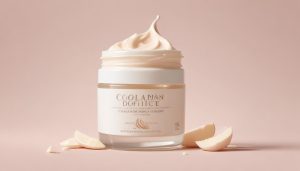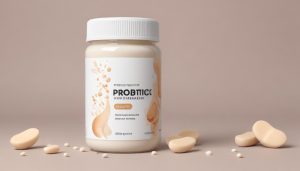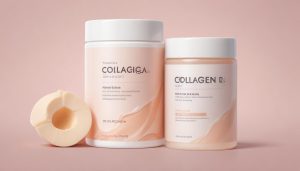Secrets You Uncover About Collagen for Glowing Skin
Natalie Brooks August 25, 2025
Collagen’s role in promoting healthy, glowing skin is catching the attention of beauty and wellness enthusiasts. This guide explores the science behind collagen, safe supplementation options, and holistic strategies proven to nurture natural radiance. Let’s uncover facts and myths, drawing on evidence-backed insights for truly radiant results.
Understanding Collagen’s Role in Skin Wellness
Collagen is a key protein found throughout the body, but its influence is especially apparent in the skin. This molecule acts as a structural scaffold, contributing to firmness, elasticity, and hydration. As natural collagen production starts to slow with age or environmental stress, skin may begin to show signs of dryness, sagging, and fine lines. The demand for safe ways to support skin health often leads people to explore both dietary and topical collagen options.
Interestingly, collagen fibers work closely with other proteins like elastin, creating a matrix that supports resilience and bounce. When the skin’s collagen matrix is robust, the complexion often appears more plump and radiant. Lifestyle elements—like balanced nutrition and sleeping routines—can either support or weaken collagen’s function. Many seek out effective ways to maintain or restore their skin’s natural foundation, hoping to preserve a bright and youthful appearance.
Scientific studies point towards the role of UVA and UVB sun exposure, pollution, and smoking in accelerating collagen breakdown. The result? Premature signs of aging that may be avoided with mindful practices. Simple actions like consistent sunscreen use or gentle skincare routines can go a long way. Knowledge about collagen’s life cycle and its importance for skin can empower better wellness choices for any age or stage.
Collagen Supplements and the Evidence So Far
Supplementation with collagen powder, peptides, or capsules has become a popular wellness trend. Many product labels promise improvements in skin hydration, elasticity, or even reduced wrinkling. Peer-reviewed research shows that certain forms of hydrolyzed collagen may increase elasticity and support moisture retention for some individuals. It’s important to look for products with transparent ingredient lists, third-party testing, and accurate dosing as guided by published studies (https://www.ncbi.nlm.nih.gov/pmc/articles/PMC6835901/).
Collagen supplementation approaches vary. Some researchers suggest that small collagen peptides can be absorbed through the gut and incorporated into dermal layers. Others point to the value of a balanced diet rich in vitamin C, amino acids, and zinc—all essential for healthy collagen synthesis. While not all claims are fully supported yet, emerging clinical studies do demonstrate benefits of hydrolyzed collagen in oral form for visible signs of aging.
There’s also public interest in marine vs. bovine sources, flavorings, and added nutrients which distinguish supplement choices. Side effects are rare but allergies can occur, especially from fish-based products. Anyone with dietary restrictions or health concerns is encouraged to consult with a medical or dietary professional for the safest path forward. Transparent labeling and published support for claims remain vital for trustworthy supplementation (https://ods.od.nih.gov/factsheets/Collagen-Consumer/).
Natural Strategies That Support Collagen Production
Whole-food-based strategies to support collagen often start with nutrition. Vitamin C-rich fruits, leafy greens, and foods with amino acids (like eggs or legumes) are known allies for natural collagen synthesis. Bone broths and certain types of fish can help, too. Dietary patterns that include antioxidants may protect skin against oxidative stress, further slowing collagen breakdown and loss.
Lifestyle choices play a powerful role: gentle exercise, minimizing prolonged sun exposure, staying hydrated, and getting restorative sleep all support the body’s regenerative processes—collagen included. Smoking, excessive alcohol, and chronic stress create an environment where collagen degrades more quickly. Swapping out these habits for protective ones can foster more resilient, glowing skin in the long run.
Collagen can also benefit from topical care, such as creams or serums containing retinoids, peptides, or vitamin C. While these do not directly replace natural collagen, they stimulate the skin’s self-repair processes. Layering oral, lifestyle, and topical approaches creates a dynamic wellness regimen. These small changes, practiced consistently, really add up over weeks and months (https://www.aad.org/public/everyday-care/skin-care-basics/nutrition/vitamins).
Debunking Collagen Myths and Marketing Claims
Collagen’s rise in popularity has led to a burst of claims—some supported, some exaggerated. It’s important to separate reliable guidance from marketing hype. For instance, topical collagen creams are unlikely to penetrate deeply enough to truly ‘replace’ lost collagen, although they may offer surface hydration. Oral supplements have stronger support from clinical evidence, but their effectiveness can depend on product quality, consistency, and overall lifestyle factors.
Many advertisements suggest ‘miracle’ anti-aging results, but scientific consensus always encourages patience and realistic expectations. Results, where observed, usually develop gradually over several weeks. Users are encouraged to check for transparent product labeling, independent testing, and direct evidence for each unique formula before making decisions. The U.S. Food & Drug Administration and European Food Safety Authority highlight the importance of factual, regulated claims in cosmetics and supplements (https://www.fda.gov/cosmetics/cosmetics-labeling-claims/cosmetic-labeling-claims).
Understanding what collagen can and cannot do sets a foundation for satisfaction rather than disappointment. Most people will see greater benefit by combining modest supplementation with healthy living—rather than relying on a single solution. Consumer safety groups recommend checking for allergens, avoiding unnecessary additives, and following usage instructions as officially provided. Informed choices lead to improved experiences.
Routine Habits to Protect Skin’s Collagen Daily
Everyday routines are the backbone of lasting collagen protection. Daily SPF is a non-negotiable practice recommended by dermatologists worldwide. Sunscreen helps block UVA and UVB rays known to break down structural proteins in skin layers. Pairing SPF with protective clothing and shaded environments can dramatically reduce the pace of visible aging—regardless of one’s chosen supplementation or topical routine.
Gentle cleansing, regular moisturizing, and occasional exfoliation preserve the comfort and function of the skin barrier, a shield that supports underlying collagen. Taking a holistic approach—where skincare rituals meet supportive nutrition and stress management—often delivers results more effectively than any quick fix. Mindful self-care routines help maintain and even gradually rebuild surface radiance.
Quality sleep, hydration, and stress management indirectly affect collagen’s function. They help regulate the hormones and repair mechanisms that fuel skin health. Simple steps, such as setting a bedtime or keeping a water bottle close, become part of a lifestyle supporting the long game for glowing, youthful skin. Small habits accumulate powerful benefits, day after day (https://www.sleepfoundation.org/how-sleep-works/why-do-we-need-sleep).
Q&A: Collagen, Beauty Trends, and Safety Concerns
With collagen ingredients appearing everywhere, questions rapidly follow. Are supplements safe for long-term use? Most research finds hydrolyzed collagen to be well-tolerated, with rare side effects. Those with allergies should examine labels carefully. Checking product certifications and sourcing is another practical measure, as transparency reduces the risk of contamination or adulteration (https://www.nccih.nih.gov/health/collagen-supplements-what-the-science-says).
Can vegans benefit from collagen support? Since traditional collagen is sourced from animals, vegan alternatives focus on supporting the body’s own collagen synthesis with nutrients rather than direct supplementation. Plant-based options—rich in amino acids and antioxidants—can still nurture the foundations of healthy skin. Eco-friendly and cruelty-free products are gaining traction, reflecting changing consumer values and a more sustainable approach.
What’s next in the science of collagen? Ongoing research investigates bioavailability, optimal absorption rates, and synergistic nutrients that maximize benefit. With the beauty and wellness sector committed to innovation, thoughtful consumers can look forward to more targeted, evidence-backed options for supporting naturally glowing skin. Stay tuned to reputable health agencies for updates as new insights emerge.
References
1. Bolke, L., Schlippe, G., Gerß, J., & Voss, W. (2019). Dietary Supplementation with Specific Collagen Peptides Improves Body Composition and Increases Muscle Strength in Premenopausal Women: A Randomized Controlled Trial. Nutrients, 11(2), 354. https://www.ncbi.nlm.nih.gov/pmc/articles/PMC6835901/
2. National Institutes of Health, Office of Dietary Supplements. (2023). Collagen — Consumer. https://ods.od.nih.gov/factsheets/Collagen-Consumer/
3. American Academy of Dermatology Association. (2023). Vitamins and your skin. https://www.aad.org/public/everyday-care/skin-care-basics/nutrition/vitamins
4. U.S. Food & Drug Administration. (2023). Cosmetic Labeling Claims. https://www.fda.gov/cosmetics/cosmetics-labeling-claims/cosmetic-labeling-claims
5. Sleep Foundation. (2022). Why Do We Need Sleep?. https://www.sleepfoundation.org/how-sleep-works/why-do-we-need-sleep
6. National Center for Complementary and Integrative Health. (2023). Collagen Supplements: What the Science Says. https://www.nccih.nih.gov/health/collagen-supplements-what-the-science-says







